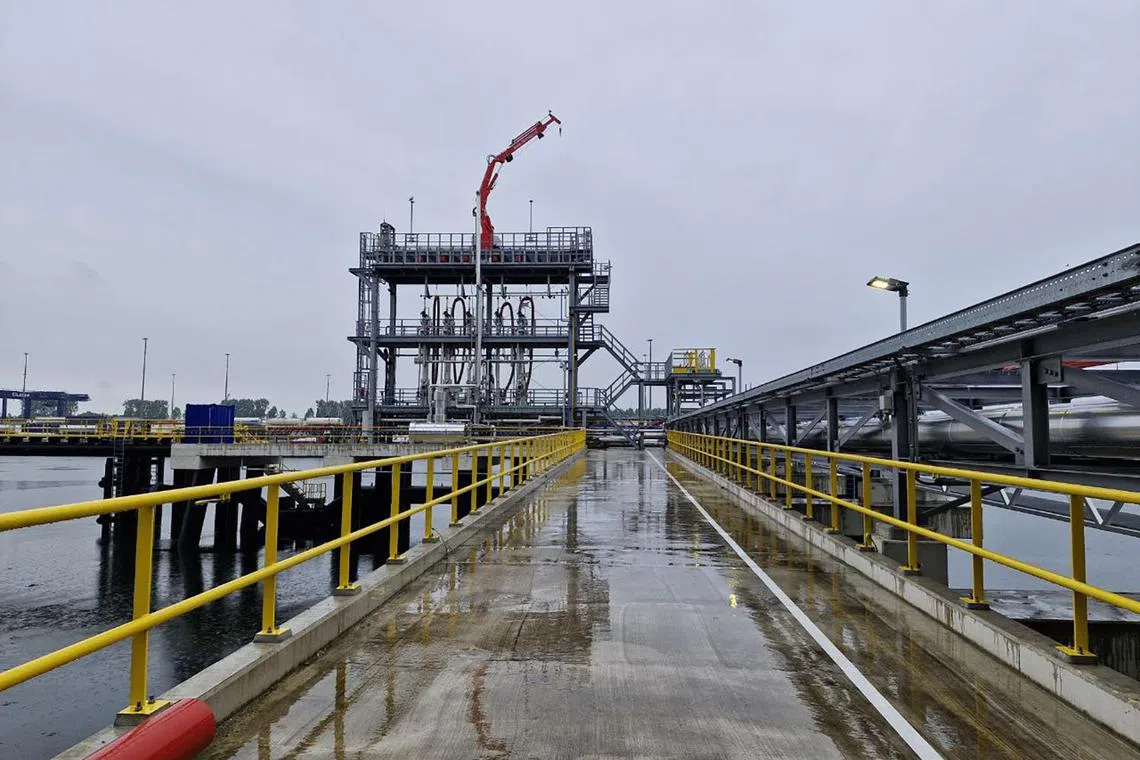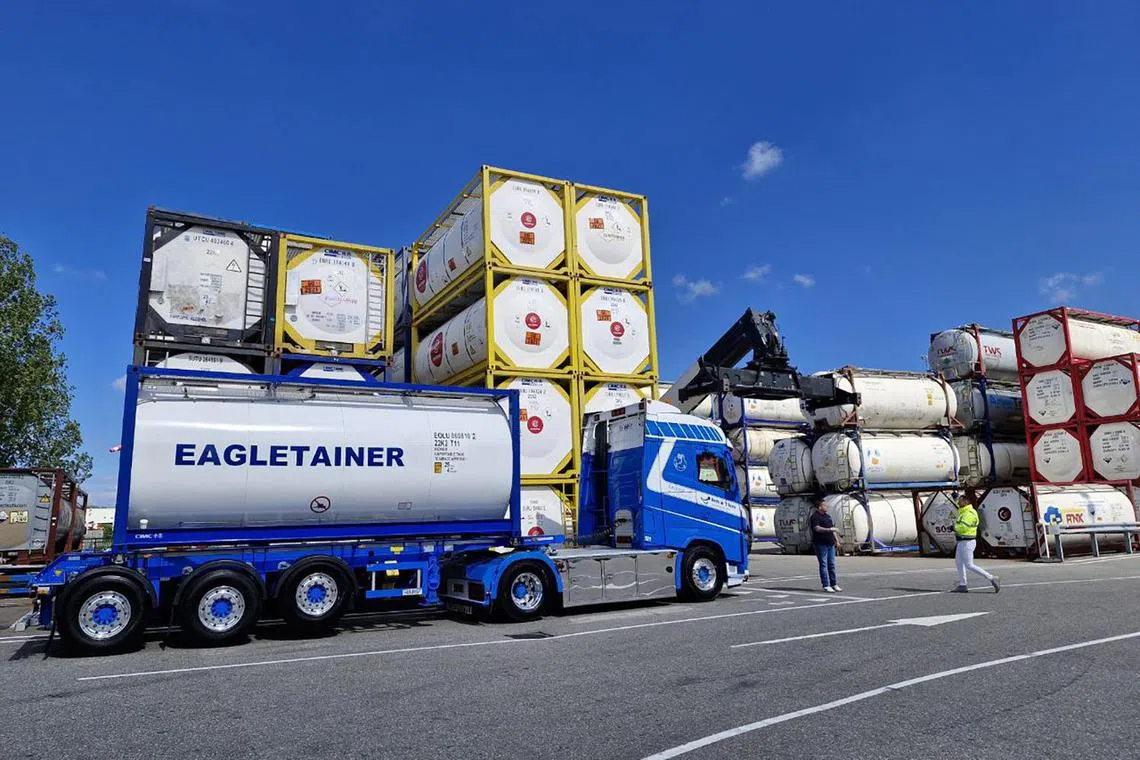S’pore companies find opportunities in the Netherlands despite regulatory challenges
Sign up now: Get ST's newsletters delivered to your inbox

Wilmar's oleochemicals plant, located in the Port of Rotterdam, produces ingredients that are used in products such as shampoo.
ST PHOTO: SUE-ANN TAN
ROTTERDAM - Singapore companies operating in the Netherlands are grappling with the complexity of evolving sustainability regulations and incurring more costs in efforts to comply with them.
One example is the European Union Regulation on Deforestation Free Products
This requires companies like Wilmar International, which work with products like palm oil, to produce documents showing they comply with the regulations aimed at preventing products linked to deforestation from entering the EU market.
Other regulations are the EU Emissions Trading System, which requires polluters to pay for their greenhouse gas emissions. Meanwhile, the FuelEU Maritime Regulation promotes the use of renewable, low-carbon fuels and clean energy technologies for ships.
Despite the regulatory challenges, companies like Singapore-listed Wilmar International continue to seek opportunities in the Netherlands and elsewhere in Europe to take advantage of the large and sophisticated consumer market there.
Mr Kuok Khoon Hong, chairman and chief executive of Wilmar International, told The Straits Times that as countries increasingly introduce more regulations to ensure better food safety and environmental protection, they should ultimately be an advantage for Wilmar, which has built plants that meet the highest standards of quality and safety.
The agri-business group operates an oleochemicals plant in Rotterdam, about an hour’s drive from the Netherlands’ capital city, Amsterdam. ST visited the Wilmar plant as part of a Europe trip to meet Singapore companies establishing a foothold there.
Oleochemicals are derived from natural fats and oils and are used in products such as shampoo and cosmetics.
Mr Kuok said: “The European market is an important market for oleochemicals and edible oils. We build plants in key markets where it is cheaper and more efficient to supply, taking into account the cost of production, import duties, technical service and efficiency in delivery, for instance.
“Based on our experience, we know that many major European buyers also have operations in Asia and they would prefer to work with global suppliers like Wilmar.”
Wilmar, which was founded in 1991, expanded its footprint in Europe in 2007 by merging with Kuok Group’s oil palm, edible oils and grains business.
In 2023, Wilmar’s Europe operations accounted for about 3.5 per cent of the group’s total revenue.
The company will also explore further downstream products such as sustainable aviation fuel, and products for home and personal care, Mr Kuok said.
Another Singapore company that has set up shop in Rotterdam is Eagletainer Logistics, which operates ISO tanks that can store oleochemicals and petrochemicals such as additives, lubricants and ethanols.
An ISO tank is a container built according to the guidelines by the International Organisation for Standardisation so it can carry bulk liquids safely.
An Eagletainer spokesperson in Singapore said: “Our existing customers had asked for rates and ISO tank services to Europe from Asia and that led to us handling shipments into the main European ports of Rotterdam and Antwerp.”

A truck carrying an Eagletainer ISO tank in Rotterdam.
ST PHOTO: SUE-ANN TAN
She noted that the port of Rotterdam is the main gateway into Europe, handling the biggest volume of inbound shipments compared with other European ports. Setting up shop there enables the company to manage deliveries to any part of the continent.
Europe’s green transition challenges the company, but also offers opportunities.
Eagletainer Logistics Europe general manager Sylvia van der Brugge said: “It means that we source for supply chain partners who also commit to the very same climate regulations as part of our quality benchmark.”
The drive towards sustainability also gives the logistics company new avenues to participate in the green market in Europe.
For instance, Eagletainer Logistics Europe plays a role in transporting feedstock to be made into renewable fuel.
Enterprise Singapore director for Europe Alan Yeo noted that opportunities continue to abound for Singapore companies in the Netherlands.
“I think that the infrastructure and the fact that it is a very small country and very close to the other logistics and transport hubs within Europe makes it a very convenient place for our companies to tap on to expand into the rest of Europe, and the rest of the world,” he said.
He noted that the Netherlands also forms a cluster with Belgium and Germany that is one of the top five chemical clusters in the world, which provides opportunities for companies like Wilmar.
The cluster accounts for 30 per cent to 40 per cent of the industry’s turnover in Europe.



